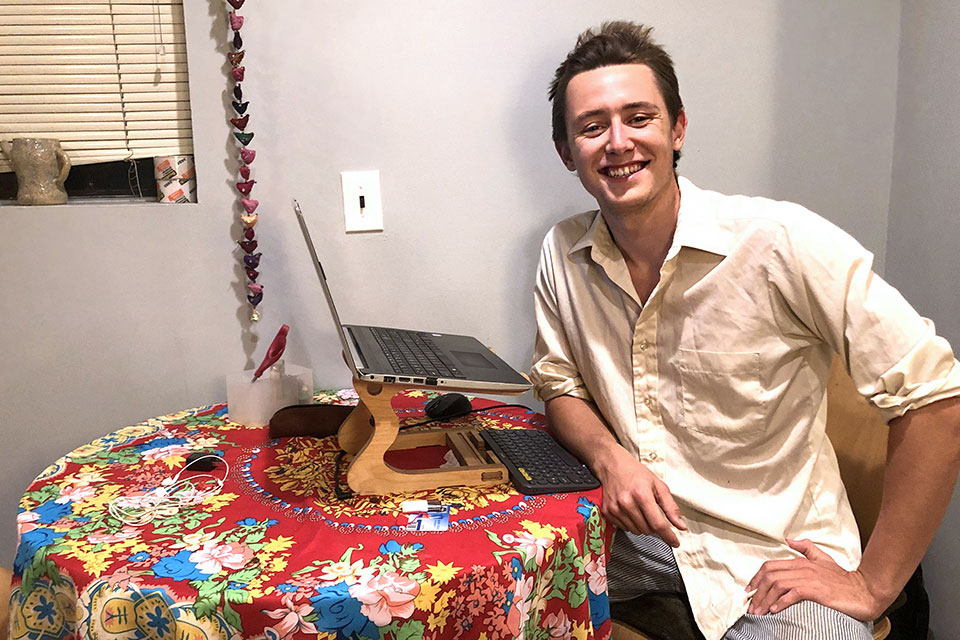SLU-Madrid Intern Researches Information Ecology and the Crisis of Sense-Making
As a remote intern for The Consilience Project, Campbell Dixon is taking part in an ambitious research project in the field of information ecology. An initiative of the Civilization Research Institute, this nonprofit organization addresses the issue of sense-making, that is, the ability of humans to cohere perspectives across the mediums and messages we consume directly and indirectly, via social media, television, news, word of mouth and so on.
The research is led by Dr. Zachary Stein, an educational theorist and philosopher whose work Dixon admires. In fact, Dixon explained that Stein’s research has driven him to contemplate his own ideas about models for academic reform. Last summer, on a whim, Dixon contacted Stein to ask whether there was any way for him to be involved with his work. Within 24 hours, Dixon had scheduled an online interview with Stein and was working on an assignment that Stein sent to evaluate his writing and research skills. “I was utterly thrilled with the magic of blind emailing one of my heroes,” Dixon said.
“This work is a direct extension of my education as a student of psychology and philosophy. Both of these fields figure heavily into informing collective responses to large-scale, complex systems of information and mass-scale civilizational cooperation.”
Dixon explained that the project is currently in the “curation” period. The team of interns is collecting and analyzing the resources that people use to make sense of the world. Over the last four months, they have compiled these tools into a large database and are now developing rubrics that can be used to assess them.
“For example, we take a news article or a news analysis website that gives commentary on primary source news and we put it through its paces: we find out how it's funded, who runs the site, who writes for it, how they generate wealth, how much data they collect on their users,” he explained. “We are also figuring out how to assess the quality of its content. We look at various metrics like how well situated the piece of media is in the media landscape as a whole, what overt and implicit biases it might operate on, how entertaining it is, how informative it is, and the complexity with which it describes its subjects.”
Dixon has been collaborating with The Consilience Project since last August and enrolled in an internship course this semester to earn SLU elective credit. He hopes that his experience with the project will help to improve his interpersonal communication skills, understand how to use his own gifts and skills for greater causes, and improve upon his own weaknesses and blind sports. Overall, he says he's just grateful to “produce quality work that serves the needs of the organization.”
More on Campbell Dixon
In search of a more dynamic college experience, Dixon transferred to SLU-Madrid after completing two years of university in the U.S.
“A globalized education seemed like the most appropriate fit for this changing world and I appreciated the global nature of the student body at SLU-Madrid. It reminded me of my time studying creative writing at Idyllwild Arts Academy in California, a boarding school where 50% of the student body was international,” he said.
At SLU-Madrid, Dixon reports that he has found a strong academic foundation. He plans to major in psychology. During the fall 2020 and spring 2021 semesters, he chose to study remotely from his residence in the mountains in southern California. “Even though I wish I was studying in person this semester, I can't speak enough to the quality of instruction that I've received from my teachers over the past two terms,” he concluded.
